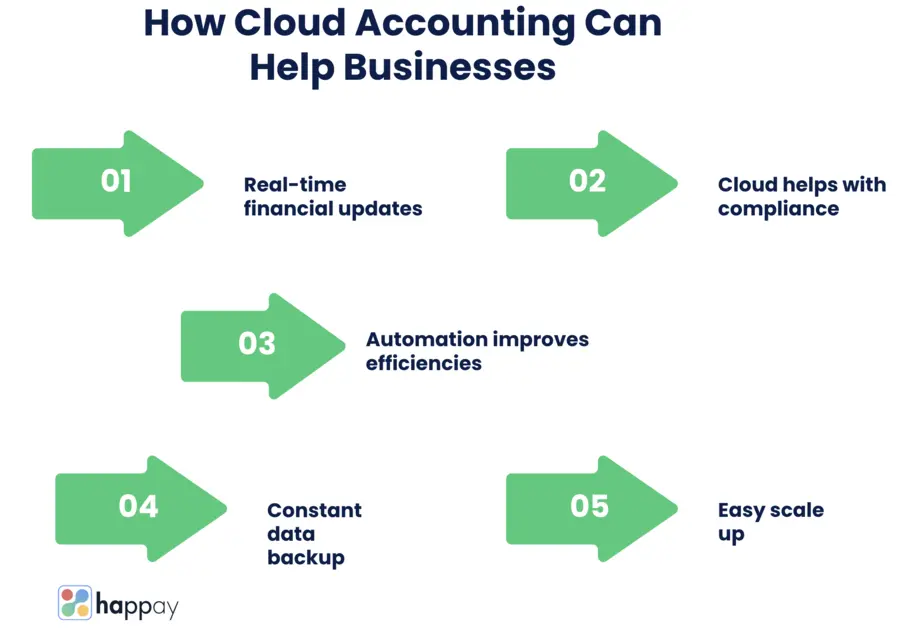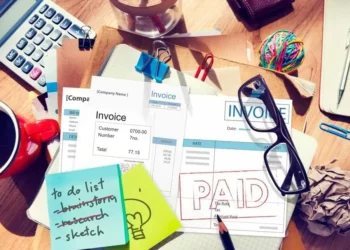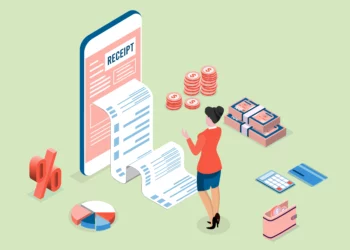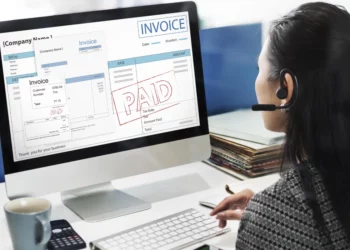What is cloud accounting?
Cloud accounting is swiftly becoming the backbone of financial management for businesses globally. As of 2023, a substantial 62% of small accounting firms in the U.S. have embraced cloud-based accounting software, highlighting its growing importance across the industry. This shift is propelled by the cloud’s ability to offer real-time financial data access and enhance collaborative efforts across teams, which is essential for dynamic business environments.
The global market for cloud computing, which significantly influences cloud accounting, is expected to reach staggering growth. End-user spending is projected to grow by 21.7% to nearly $600 billion in 2023.
This growth underscores the critical role of cloud technologies in driving efficiency and innovation in accounting practices. By integrating cloud accounting systems, businesses not only streamline operations but also gain strategic insights that can lead to better decision-making and improved financial outcomes
Must Read: 9 Best Accounting Software
How can cloud accounting help businesses?
Cloud Accounting can help improve the efficiency and credibility of your business.

- The financial health of a business is closely related to its growth. With the real-time financial updates cloud accounting provides, you can make informed and quick business decisions. The difference of mere seconds in making business decisions can significantly impact its financial health.
- Businesses have to comply with accounting rules and tax regulations. Non-compliance can have significant financial impacts. Thankfully, cloud accounting software takes care of compliance for you.
- Automating through the cloud eliminates manual processes, which means fewer errors and quicker turnaround times. For example, you can automate sending late payment reminders to clients and invoices.
- Since the data is online and always backed up, your data will remain secure, and business can continue in case any natural disasters wipe out your data centers.
- A growing business benefits from using cloud accounting as it can quickly scale as the business grows.
Suggested Read: 10 Best Accounts Payable (AP) Software
What does the future look like with cloud accounting?
Automation and data analysis in this area have led to significant time and cost savings. With further innovations, much more can be achieved.
1. Using blockchain
Blockchain is a digital tracker and ledger of an asset’s movements. It eliminates the need to maintain financial records and transaction verifications. When the ledger is updated to show that a client received products purchased from you, it can trigger an automatic, immediate payment to your business, saving you time and money.
2. Using AI
Using AI, the software can analyze large amounts of data to evaluate market performance and help businesses make better decisions. It can also forecast any risks or issues that may arise with the company, vendors, or clients.
3. Third-party app integrations
Third-party apps that fulfil different accounting needs are integrated into this kind of an accounting system. In the future, more apps can be developed to make it easier to access their functionality via accounting software. This avoids having to copy data back and forth and switching between applications.
How does cloud accounting work?
An organization or your company’s financial data is stored and processed on the cloud. You can choose from several accounting software available in this category.
On subscribing to the software, the required stakeholders, such as accountants, business owners, etc., will receive their credentials which you can use to access your accounting software. The software creates user-specific views that will be helpful for the user. For example, the sales team has a dashboard to view sales figures, graphs, and details about their clients and sales procedures, and executives have dashboards with data they need to make business choices.
Most software also provides mobile app versions to view reports and data and make decisions on the go.
Your business bank accounts are linked with the software, so all the transactions will be automatically updated and fed into the software. All the financial data remains up to date and helps you make the most informed business decisions.
The software is usually easily integrated with third-party tools like Salesforce, Shopify, GoCardless, etc.
Large companies need a centralized database to handle their finance. This is also known as Enterprise Resource Planning (ERP) system. Such accounting tools combine all systems used for invoicing, purchasing, inventory management, tracking, accounting, marketing, finance, etc.
Quick Read: What is Cloud ERP Software and How does it Work?
Benefits of cloud-based accounting software
Let’s see a few benefits of using cloud-based accounting software.
- Since it is cloud-based, you do not have to download and install heavy accounting programs on your desktop.
- With a system and a good network connection, you can access your financial data anytime and from anywhere.
- All the data is updated in real-time, so you always make informed decisions.
- Most software has seamless third-party integrations, which save you time and effort. Also, you do not have to download secondary applications.
- You can create customized financial reports and view them on the go.
- Bank accounts are integrated with the software, so the transactions are updated automatically, avoiding errors due to manual data entry.
- You can avoid repetitive manual activities by automating them. This makes creating purchase orders, sending invoices, making payments, etc., faster.
- Cloud Accounting Tools place extreme importance on their data security. Their security protocols are top of the market and extensive.
- Cloud software can scale seamlessly as your business grows. Adding cloud server space is much easier than getting new hardware to accommodate your growing business requirements.
- All authorized users can collaborate easily on cloud-based software. It focuses on effective communication and visibility across the teams.
- All your financial statements are reports will be accurate and standardized, making it easier to file taxes.
- It can track and manage your inventory in terms of quantity, location, etc.
- It gives you enhanced data visibility and corporate control.
- Cloud accounting software allows you to create custom and professional-looking invoices and receipts in minutes.
Cloud Accounting vs On-Premises Software
Cloud |
On-Premise |
|
|
Location of Software |
Software is on the vendor’s remote servers, i.e., the cloud data centres. | Software is installed on the company’s desktop, i.e., the server in the company’s data centre. |
|
Accessibility |
You can access your account from anywhere and anytime using any system and an internet connection. | You can only access your account using the desktop on which the software is installed. |
|
Scalability |
Easily scalable with no significant spikes in price | Scaling can get expensive with purchasing new hardware and licenses. |
|
Updates |
The software has auto-updates. | The IT department has to take care of the periodic software updates. |
|
Maintenance |
Easier than on-premise software | Usually, a team is dedicated to maintaining the software. |
|
What do we pay for? |
Solely for the software. You can choose from monthly, quarterly, and annual subscription plans. | Apart from the software, companies have to pay for the server hardware, data centre, storage, and training team. |
|
Data Security |
Along with top security protocols, the data is also backed up and updated by the cloud accounting providers. | The company is responsible for data backups and security. |
Cost of cloud accounting
- In Cloud-based software, you only have to pay for access to the software. Expenses for hardware and data storage are eliminated. Unlike On-Premise software, there is no need to invest in IT support teams for installing and maintaining the system. This makes cloud accounting less expensive than desktop-based applications.
- Accounting software has different pricing plans to choose from. The plans vary regarding the number of users allowed, limits on features, etc. Some software also has free plans or trial periods along with monthly and annual plans. This gives you the flexibility to choose the plan which suits your needs best and only pay for what you want.
- Companies can quickly scale by adding modules and members as required as their business grows.
- There are also hybrid cloud accounting solutions in which customers pay a hefty one-time fee for a long-term license. They have to pay for maintenance, support, and hosting fees.
Frequently Asked Questions (FAQs)
The best accounting software is the one that reduces your business’ accounting overheads and improves its efficiency within the budget. The best software will depend on your accounting needs and budget.
1. QuickBooks is a top cloud accounting software option if you are a small business with complex business needs.
2. If you are on a budget and need help with invoicing and payments, Melio is worth considering.
3. Xero is suitable for micro and mid-size businesses.
4. Sage business cloud accounting software, Netsuite, and Zoho are among the best cloud accounting software applications.
5. Many cloud-based accounting software in the market cater to different business needs and sizes.
The threats of data breach or loss will always exist, but with the right cloud solutions, you will have sufficient protection. Cloud Accounting Software has top security protocols and undergoes frequent security updates. All your data is encrypted, and your account is password protected.
Data is backed up on multiple servers by the cloud application service provider, so even if one server fails, you will have access to all your data.
You can maintain the physical security of your machines by updating passwords, locks, etc.
When you are cloud accounting, you only pay for account access. No additional server hardware or data storage is required, eliminating massive expenses. Also, the cost of having a dedicated IT team for support and maintenance is avoided.
Expanding a business incurs huge expenses when using desktop-based accounting applications like getting new hardware and license. Many of the overhead costs of desktop-based applications are eliminated in cloud accounting. You can seamlessly scale using cloud accounting without significant expenses.
Companies across all niches run on cloud accounting software. If your business and its data volume are growing, then adopting cloud accounting software will be helpful. It will help you make quick, informed decisions on updated data and automate most tasks. It improves the financial health of your company.
Some of the most commonly used online accounting software are QuickBooks, Xero, FreshBooks, Wave, Sage 50.






